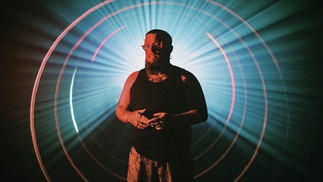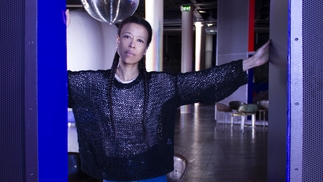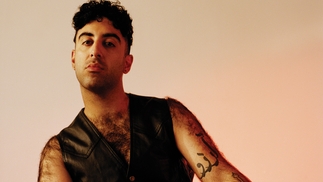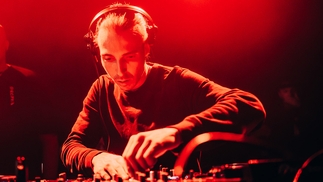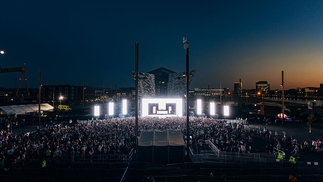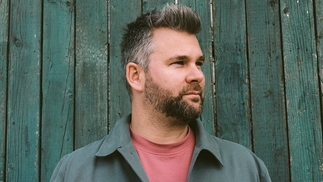On Cue: Jordan
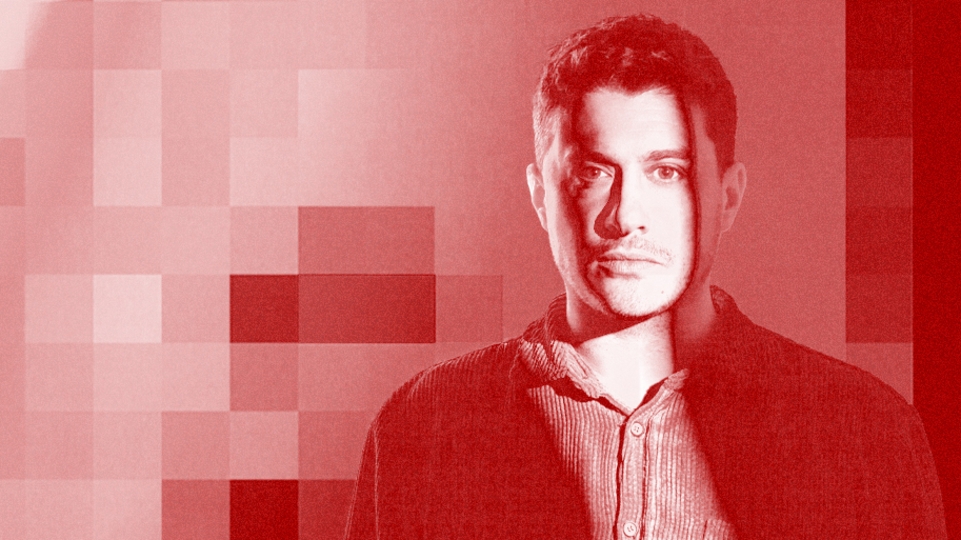
On Cue is our flagship mix series, celebrating the pivotal DJs and producers whose influence has shaped the world of electronic music, both in their local scenes and beyond. This week, Nocturne label head, Jordan, steps up with an hour of warped house, Italo disco and heady electro, and chats about his early teens spent on the clubbing circuit, The Night Institute, and his minimalist studio set-up
It’s 2006 in Northern Ireland, and Belfast-born DJ Jordan is performing to 10,000 people on stage at the now-defunct Planet Love Festival, which is being broadcast live on BBC Radio 1. It sounds like a standout moment from a seasoned career, but at this point, Jordan is only 16. He’s still at school Monday to Friday, and being driven up and down the country by his “long-suffering best mate Ryan” to play gigs. He’d been performing for two years illegally before that, too.
Before the Planet Love performance, Jordan entered a Radio One competition at just 13, having been captivated by electronic music from the sofa of his living room in Belfast. “There was a Sky TV Channel called Rapture TV, years before the Boiler Room generation, that streamed live DJ sets from clubs like Slinky and other superclub era venues,” he says. “The whole spectrum of the subculture fascinated me. When I was 14 I started making intros and playing with Sony Soundforge, before stumbling my way through FrootyLoops using internet forums.”
“I’m a bit of a wildcard in the sense that my first experiences in nightclubs were underage as a DJ,” Jordan says candidly. “Years before being in a club as a punter with a drink in my hand, I’d been actively touring the Irish club circuit.”
When the DJ and producer first started clubbing, he and his friends were frequenting institutions like the now closed Stiff Kitten, and gay club Mynt, in Belfast. He was listening to refined techno DJs, and exploring diverse clubbing crowds in Europe with friends. “We were listening to people like Matthew Dear, Phil Kieran, Richie Hawtin.. all the Minus crew,” he remembers. “I convinced my mates to save up and go to Fabric for my 18th birthday, and we were taking trips to Berlin for festivals like Sunday Adventure Club. It was really exciting and felt like our little secret, and there was such a broad spectrum of people in the clubs. In my mind that’s still the dream clubbing environment — weird exciting music and mixed crowds. Fuck the clones.”

In his late teens, Jordan moved to Leeds to study Music Technology, and was throwing parties in the city as well as doing the lighting at Back to Basics parties for the likes of Andrew Weatherall and Claude VonStroke. In his third year at Leeds University, however, his mum was diagnosed with Motor Neurone Disease, and he moved back to Belfast to be her carer. Noticing a shift in the music landscape while he’d been away, he saw a gap in the market and launched an after-hours party series, Nocturne.
“I was using a variety of pop up spaces, and soon realised I was getting 200 people to come to parties with no real guests, and it was quite refreshing,” he says. “The late night illicit thing started to feel a bit dodgy, so I slipped into legit venues and spent the next few years booking DJs I love to come and play in the city.” Booking big name DJs like Huxley, Move D, and Roman Flügel, the party began to feel like what Jordan describes as a “false economy”.
“As much as I loved the thrill of throwing the parties, I was having to charge higher ticket prices to regulars because it was costing me more to run parties, and I wasn’t getting to DJ as much — which was the whole point of running parties in the first place.”
Jordan now runs Belfast party The Night Institute, alongside local hero Timmy Stewart, who he met when they were both tutoring for a company that delivered DJing and Ableton classes to disadvantaged adults. “When the opportunity arose to run a weekly party, it made sense for him to be a part of it as someone who had been an integral part of the Belfast scene for two decades,” he says. The ethos for the event was simple — reasonable entry price, quality electronic music from across the spectrum, and nice people on the floor and on the door — and the pair spent the next three years playing all night long, back to back.
The parties are now less frequent, but they still bring up new DJs through the ranks at the events they do put on, and the community and legacy of the weekly night lives on in the city and the lives of those who attended. “Our sound technician James thanked us for putting him through college — we’d been completely unaware — and a girl told us she met her boyfriend through coming to the party each week. Our photographer, Niall Murphy, captured the memories over the years I’ve forgotten, and is possibly the best club photographer I’ve worked with.”
Jordan launched his label Nocturne in 2016, as an extension of the Belfast parties and as a platform to release his own music. It’s those hours spent playing upbeat, vibrant house and synth-heavy electro in clubs every weekend over the years that continue to inspire Jordan’s productions today.
“Something new and exciting will catch my ear, and I wish I had more tracks like that — so I’ll try and make them,” he says, citing Roman Flügel as a huge inspiration throughout his production processes. “I’ve missed the mark obviously,” he says, “but I was a huge fan of the Alter Ego wonkiness in the ‘00s, and he has remained untouchable through the decades that followed. Sliced Africa, Bahia Blues Camp. Fucking hell — I could go on all day and list other artists, but I think it’s nice to have someone you admired consistently for over a decade and a half.”
In terms of production and making his music, his home studio is minimalistic. “My setup is pretty simple now, it’s a box room with one desk and a DJ setup on it, and another desk with my keyboard, laptop and monitors,” Jordan says. “I have years of samples on a hard drive, and about five soft synths I use to write music on a daily basis. I also have a little utility called Soundflower which enables me to record from the browser into Ableton. All these little tricks help make the process fun and a bit quicker.”

From the high-energy house tracks on his ‘Coup De Grace’ EP for Tiga’s Turbo Recordings back in 2016, to the showcase of his love for ‘80s inspired sounds on ‘Belfast Belters’, Jordan’s versatility as a producer is just as dynamic as his set selections. It’s these abilities that have seen him perform at venues like Japan’s Circus Tokyo, and Berlin’s Polygon Club. He also recorded a Boiler Room at the Belfast AVA festival and conference in 2017, somewhere he says “afforded a legitimacy to the independent club scene in the city that wasn’t previously acknowledged by the outside world.”
Jordan will return to AVA in May, and is slated for a performance at London’s Junction 2 this summer, alongside the likes of Eris Drew, Ben UFO, and Honey Dijon. There’s also new music incoming on the Nocturne imprint, from an artist called Viper Patrol, as well as the second Nocturne Edits EP — the first of which found a home in sets from Bicep, Midland & Gerd Janson. His On Cue mix is an hour of warped house and heady electro, honing in on his love for ‘80s-inspired sounds and late night, club-ready dance tracks. Check it out below.
Tracklist
Bawrut 'Ghettoscar'
Boot & Tax 'Il Canto'
Balam 'Macondo'
Phillipi & Rodrigo 'Barbarella'
Chemical Brothers 'Do It Again (Oliver Huntemann Remix)'
Jolly Mare 'Dribbling'
Warlock 'Peckham Heights'
Patrick Conway 'Cobby & His Animals (Luca Lozano Remix)'
Vanessa Worm 'Rando M'
Fish Go Deep 'U No'
Italomore 'Win2Win (Lauer & Fabrizio Mammarella Remix)'
MKRNI 'Humedad (DJ’s Pareja Remix)'
Santos 'Expression 727'
Klapto 'Mister Game (Alden Tyrell Instrumental Remix)'
